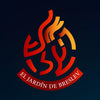
Parasha Tazira-Metzora (Vayikra-Lev 12,1-15,33)
"When a woman conceives..." (12:2)
If Man is worthy, if he makes his soul the essence of his being, then he precedes all creation. For it was the spirit of Man that floated over the depths even before the creation of light. But if he is not worthy, if he boasts of his physical dimension, then in terms of the physical precedence of Creation, even the mosquito comes before him...
For this reason, the Torah addresses the laws of purity for Man after the laws of purity for animals: just as the physical creation of Man comes after that of animals, his laws are explained after the laws of animals. This applies only when man behaves like a mere sophisticated animal. But if man sets aside his physical side, giving preponderance to the soul; if he fulfills the purpose of Creation, recognizing and serving his Creator, then he precedes all Creation.
(Based on Midrash and Rashi)
"And on the eighth day the flesh of the foreskin shall be circumcised" (12:3)
The greatness of Shabbat is evident in the fact that a child does not receive the Brit Milah (the covenant of circumcision) until he is eight days old, that is, until he has lived a Shabbat. In other words, the reason the Brit Milah is performed on the eighth day after birth is so that the child can experience the full sanctity of Shabbat before the Brit Milah. Only then can he reach a level that will qualify him to enter the sanctity of the Jewish people through the Brit Milah.
(Yalkut Yehuda)
"And on the eighth day the flesh of the foreskin shall be circumcised" (12:3)
In the Brit (in the covenant of circumcision) it is customary to tell the parents, "Just as he was brought into the Covenant (Brit), may he also be brought into the Torah, into marriage, and into good deeds." Just as he was brought into the Brit, which now forms an inseparable part of it, it is our wish that all the other mitzvot of the Torah also become an inseparable part of it.
(Iturei Torah)
Parashat Metzora
"This is the law of the Metzora" (14:2)
Metzora (popularly translated as leper) is also composed of two Hebrew words: "motzi" (to take out) (shem) and "ra" (to speak ill of someone). "To speak ill of someone."
Once upon a time, there was a peddler who went from town to town, announcing: "Who wants to buy the elixir of life! Who wants to buy the elixir of life!" Rabbi Yanai heard him and wanted to buy some of his concoction. "You don't need concoction, neither you nor anyone like you," the peddler replied. But Rabbi Yanai insisted. Finally, the peddler took out a Sefer Tehillim (Book of Psalms) and read it to Rabbi Yanai. "'Who wants life...' what is the next verse?" the man asked. Rabbi Yanai replied: "'Guard your tongue from evil...' All my life I read this verse and I didn't know its meaning until this peddler taught it to me!"
"And he shall be brought to the Kohen" (14:3)
When a person speaks lashon hara (bad language), he demonstrates that he has no understanding of the power of speech. He demonstrates that for him, words are insignificant compared to actions. By speaking a bad language, he awakens an accuser in Heaven, not only against the target of his lashon hara, but also against himself. An angel, equipped with a stereo recorder, stands beside each of us and records every word we utter.And to teach those who speak lashon hara the power of even a single word, the Torah commands that the transgressor be brought to the Kohen. But even when he goes to see the Kohen, his entire body covered in tzaraat (leprosy) for all to see, and until the Kohen utters the word "Unclean," he is still considered completely pure. Likewise, he cannot return to his former status, even though the disease has been completely cured, until the Kohen utters the word "Pure." Thus, the transgressor learns the power of even a single word. For with a single word, he is segregated, and with a single word, he is redeemed.
Based on Ohel Yaakov
Dedicated to the speedy healing of all the sick in Am Israel and throughout the world, and to the success and good sustenance of those in need.
The Breslev Garden recommends:
